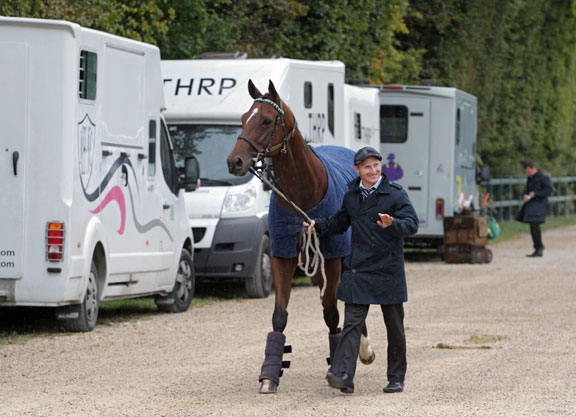A proposal on cross-border horse movement between EU Member States and Britain once the latter exits the European Union has been sent to Michel Barnier, the European Commission's head of task force for relations with the United Kingdom; and to Lord Frost, the British Prime Minister's Europe adviser and chief negotiator of Task Force Europe.
The proposal includes the use of digital passports to facilitate international transport with full traceability and sanitary guarantees as well as immediate access to vaccination and medical records of guaranteed high-health status horses; and zero tariffs, which currently apply but would be extended to include geldings. The digital equine passports can also be adopted for use between EU Member States and A-listed third countries.
The task force is seeking to have its proposals captured in the text of both the Trade Agreement and in the EU Animal Health Law, which comes into force on Apr. 21, 2021. Should a trade agreement with Britain not be reached, the task force is asking the EU to declare an equilibrium of health status for A-listed third countries.
“The equine industry is of crucial importance to the economic, social, sporting and cultural fabric of both the European Union and the United Kingdom, and as representatives from all sectors of that industry, we believe that there are simple solutions that can guarantee a secure future for the European equine industry”, said Ingmar De Vos said, president of the International Horse Sports Confederation, a collaboration between the global governing bodies for equestrian sport and racing. “It is one of the most important animal breeding and production sectors in Europe, larger and with greater economic impact and employment than a number of other European agricultural sectors, with a net worth of over €52-billion per annum, providing 210,000 direct and more than 500,000 indirect jobs.
“Our goal is to reach an agreement that will allow for a continuation of the historical expedited movement of horses for breeding, sale and competition between EU Member States and Britain. While there are some sectors currently under discussion that seem to remain difficult in the negotiations, we believe that there are simple solutions within the equine industry that can be readily included in a Free Trade Agreement. Indeed, they are also workable even in a no deal scenario.
“We are asking the negotiators on both sides of the table to take our proposals on board and incorporate them into the texts of the Trade Agreement, if there is one, and the EU to include them in the incoming EU Animal Health Law, which comes into effect next April. Without agreement on this, we estimate that the industry in Europe could shrink by as much as a third, with a potential €17-billion reduction in economic contribution, and the potential loss of 250,000 jobs in a marketplace already threatened with critical unemployment levels and a significant reduction in foreign direct investment in the European Union as the economic focus shifts to North America and Asia. So failure is not an option.”
Not a subscriber? Click here to sign up for the daily PDF or alerts.






